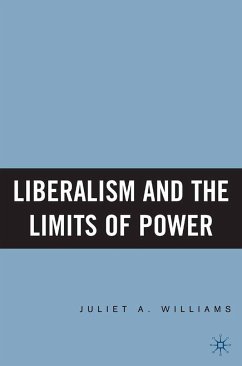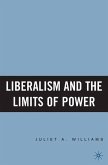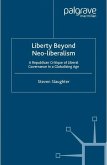This book provides the first critical assessment of important recent developments in Anglo-American liberal theorizing about limited government. Following a comparative study of canonical liberal philosophers Hayek and Rawls, the book reveals a new direction for conceptualizing limited government in the twenty-first century, highlighting the central role that democratic politics - rather than philosophical principles - should play in determining the uses and limits of state power in a liberal regime. Williams draws on recent scholarship in the field of democratic theory and cultural studies in arguing for a shift in the ways liberals approach the study of politics.
Hinweis: Dieser Artikel kann nur an eine deutsche Lieferadresse ausgeliefert werden.
Hinweis: Dieser Artikel kann nur an eine deutsche Lieferadresse ausgeliefert werden.
"One of Juliet Williams's many achievements in her valuable exploration of liberal concern with limited government is her bold methodological challenge to the limits of liberal theorizing. In a work ranging from Rawls to reality television, she demonstrates how rigorous political theory can and must be responsive to its popular contexts."
- Jodi Dean, author of Publicity's Secret: How Technoculture Capitalizes on Democracy
- Jodi Dean, author of Publicity's Secret: How Technoculture Capitalizes on Democracy








